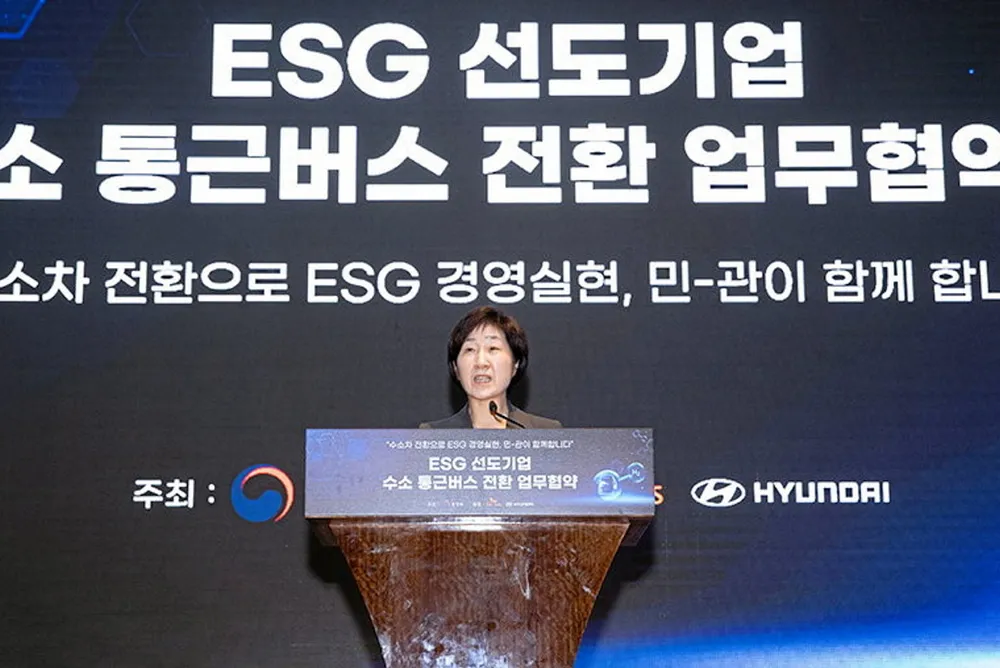South Korea signs deal with Samsung, Hyundai and others to put 2,000 hydrogen commuter buses on its roads by 2026
A total of 26 companies and local administrations, as well as the national government, vow to put plan into action

A total of 26 companies and local administrations, as well as the national government, vow to put plan into action
